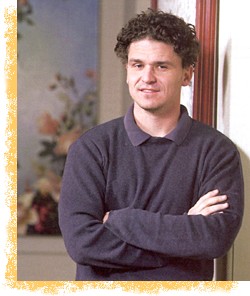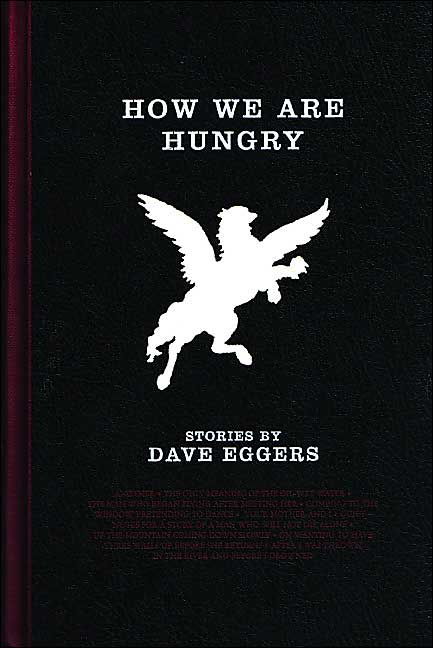The publication of How We Are Hungry, his collection of 15 new stories, will certainly change that. Ranging in setting from Tanzania to Ireland, from Egypt to a long, lonely stretch of I-5, these tales reinvigorate that staid old form, the short story, with a jittery sense of adventure. All of Eggers' characters are seekers; most of them are confused about what exactly they're seeking.
In this sense, Eggers is beginning to resemble this generation's Jack Kerouac. He adores motion, but it's impossible for him to write about movement without examining its moral component. How do Americans travel without importing the injustice of our wealth to other regions? It's a question Eggers pondered in his debut novel, You Shall Know Our Velocity, the tale of two young men trying to give away $32,000 in a week.
How We Are Hungry comes out of a similar anxiety about generosity. In “Another,” a man gets on a plane and flies to Egypt for vacation shortly after the American government has told him it's not safe to be there. He spends the rest of the trip touring the country on a horse, taking what seems to be a ritualistic pounding in the saddle. “I needed to prove to this Egyptian lunatic … I could be punished,” he says, “that I expected the punishment and could withstand it.”
What really seems to irk Eggers is that what one calls generosity in this country is considered empathy in other parts of the world. As one reads deeper, however, Eggers makes a deft transition from exploring global empathy—which can seem so theoretical, especially when the fighting is Over There—to exploring relations between the sexes, which often feel agonizingly tangible.
In “The Only Meaning of the Oil-Wet Water,” a woman flies down to Costa Rica to figure out whether her friend Hand (who reappears from Velocity) is a lover or merely a friend. It's a heartbreaking little story because—if you're the kind of person that takes time seriously—it reminds you how many near misses you have when searching for the One. What do you do with all those moments, so indelibly remembered?
And here is where Eggers takes his writing to a whole new level. While A Heartbreaking Work of Staggering Genius fried Eggers' grief over his parents' death in a vat of irony—a necessary tick, no doubt, in desanctifying the memoir—these stories do not have their guard up. They are raw, unfiltered and have the same quivering texture of lived experience. A sentence Eggers uses to describe surfing in the book aptly describes his characters' emotional bona fides: “Everyone was an amateur, everyone pretending at grace.”
Couples make out awkwardly, hungrily and, once, a little too forcefully. They say inappropriate things. Indeed, the challenge of connection is what animates Eggers' best writing, and he's set the bar quite high for himself. God, clouds, horses, sheep, a very happy dog and the ocean all have speaking parts in this collection.
It's a shame it has taken me this long to mention how fun it is to read Eggers' prose, even when he is twisting a knife in your heart. Reading these stories you get the sense that he really likes words, that he might be thinking to himself “wheeeeeee!” as he types. For example, on her trip to Costa Rica, the heroine of “The Only Meaning of Oil-Wet Water” laments that she went to Costa Rica instead of Nicaragua.
“Nicaragua sounded dangerous,” she thinks to herself. “It sounded like some kind of spider. There it goes, under the table—Nicaragua!”
Following Dave Eggers' talent as it tap dances across continents and genres is a bit like watching a spider walk sideways up a wall. He does things which should be impossible, and he does them gracefully. And all the while his web gets bigger and bigger.










